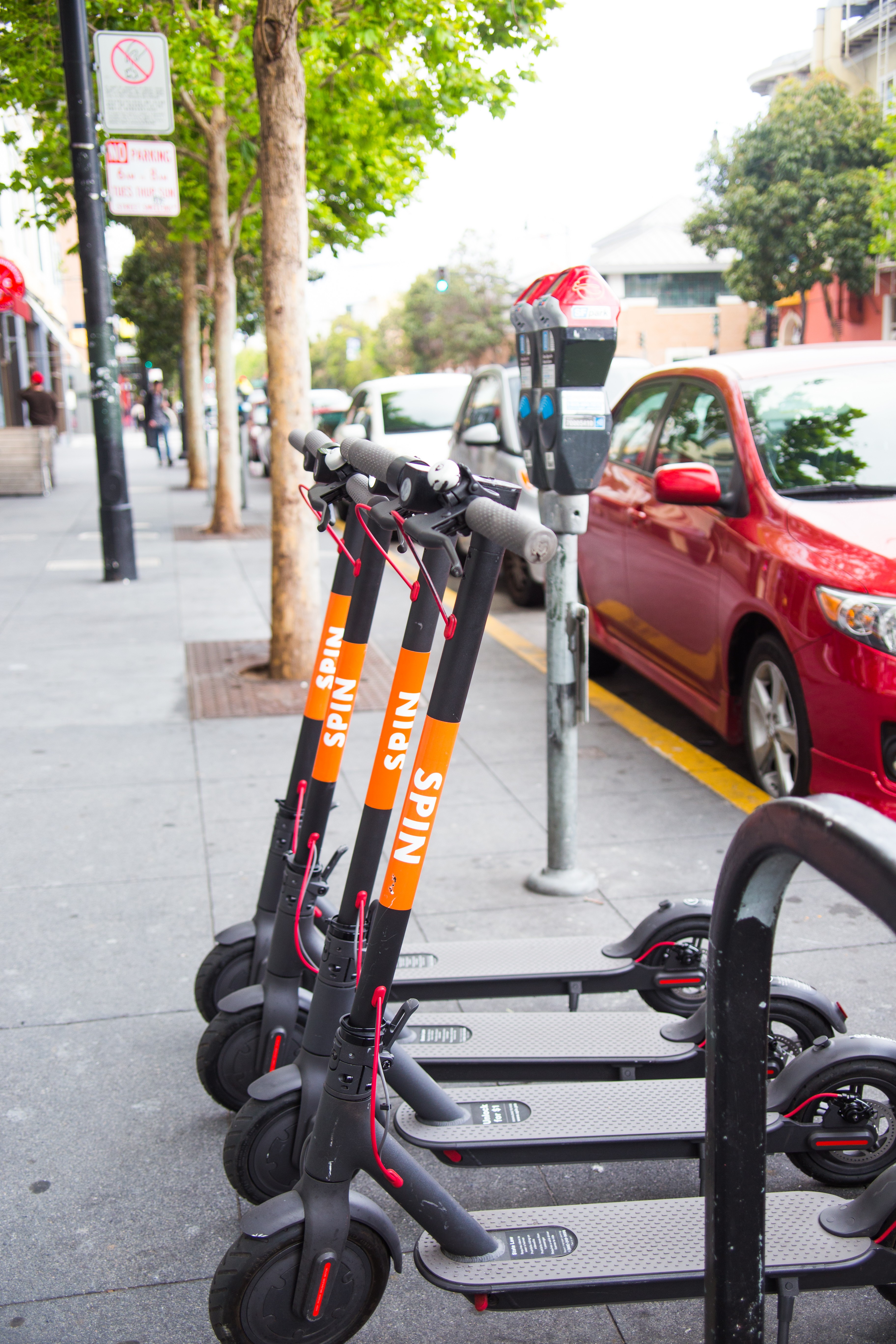 Facebook
Facebook
Three little Birds
Memphis officials project that the city will collect about a half a million dollars from scooter and bike operators during the first year of its Shared Mobility Program.
The program officially launched here last week at the same time the dockless scooter company Spin, joining two other operators here, Bird and Lime, brought 150 scooters to Memphis.
Spin is slated to increase its fleet to 500 scooters over the next few weeks. Also, this month under the shared-mobility program, another company, Bolt, is expected to add its scooters to the city’s fleet. Early next year, Explore Bike Share is planning to roll out a new fleet of e-bicycles.
Together, Spin, Bolt, Bird, Lime, and Explore Bike Share are slated to operate 3,300 shared-mobility devices in the city once the program is fully in place.
Dan Springer, the city’s deputy director of media affairs said the city anticipates collecting about $500,000 from the operators during the first year of the program.
Per the companies’ agreements with the city, the for-profit operators are required to pay the city an initial permit application fee of $10,000 and then an annual renewal fee of $1,000.
Additionally, each year for-profit companies must pay $50 for every non-electric shared-mobility device they have in the city and $365 for every electronic device.
Non-profit operators, like Explore Bike Share, are required to pay $1 per non-electric device and $10 for every electric device each year.
Officials said that the fees collected from each operator will be used to support targeted safety and educational programs. Nicholas Oyler, the city’s bikeway and pedestrian program manager, said the content and structure of those programs is yet to be determined.
Generally, he said the programs will target all users of the street in an effort to improve the safety of walking, as well as riding a bike or scooter. Oyler said this will include instructions on safe riding and walking, as well as a focus on the laws applicable to drivers as it relates to sharing the street with other users, such as the requirement for drivers to stop at crosswalks.
[pullquote-1]
The fees collected from the operators will also go toward improving and expanding the city’s bikeway network. Oyler said with the increase in shared-mobility options, there will be an increased use of bike lanes.
“Providing separate space on the street where people can comfortably operate these vehicles, without vying for room on the sidewalk or in travel lanes, enhances everyone’s safety,” Oyler said. “Widespread adoption of these new mobility technologies will depend on a safe and connected network of on- and off-street spaces to ride and reach destinations.”
Specifically, Oyler said improvements could mean installing new bike lanes entirely or upgrading the physical separation from automobile lanes along existing bike lanes. Additionally, Oyler said the city will likely install scooter parking spaces and racks in high-density areas.
Oyler said as the program continues, the city will determine where to make these infrastructure improvements based on data collected from the shared-mobility operators.
Per the city’s agreement with the operators, the companies are required to submit real-time usage data to the city. Oyler said if the data shows that certain streets are commonly used for routes, then that might justify infrastructure improvements on those streets.
To ensure the program is equitable, the city is also requiring each operator to do the following:
• Provide a service area that includes low-income communities
• Implement marketing and targeted community outreach plans to promote the use of shared-mobility devices in low-income communities
• Offer cash payment options or other strategies to ensure equitable payment options
• Provide options for Spanish-speaking users and those with special needs to access the programs and memberships
• Redistribute and re-balance devices daily and in order to not “discriminate against communities of low and moderate income” and to help promote equitable access to and from these communities
For riders, the city encourages:
• Wearing a helmet. (It’s required for users under 16 years old)
• Riding scooters on the street, bike lanes, when available, and on bike paths
• Yielding to pedestrians on crosswalks and sidewalks and to bicycles on the street or in bike lanes
• Parking devices upright on hard surfaces in the furniture zone of the sidewalk, in a bike rack, or in another area designated to bike parking.
 Spin
Spin 